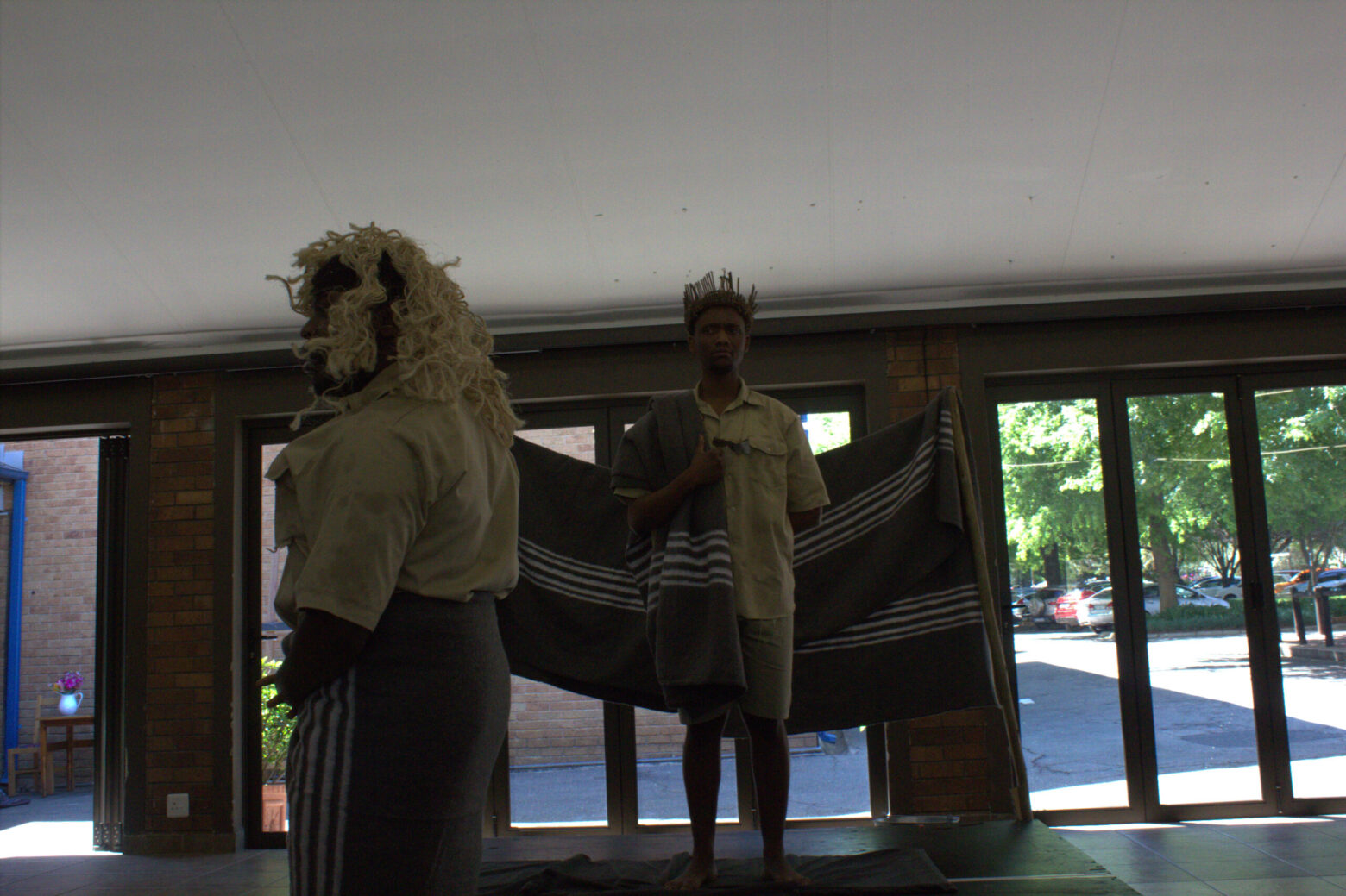On 14 October St Benedict’s College had the honour of hosting the productions Sizwe Banzi is dead and The Island devised by John Kani, Winston Ntshona and Athol Fugard as part of Joburg Theatre’s initiative to bring the setworks studied to life.
On 14 October St Benedict’s College had the honour of hosting the productions Sizwe Banzi is dead and The Island devised by John Kani, Winston Ntshona and Athol Fugard as part of Joburg Theatre’s initiative to bring the setworks studied to life. At a time of such turbulence due to the ongoing pandemic, the ability to have a return to normality was a welcome change to the staff and pupils of St Benedict’s. Both plays are directed by the award winning Thespian, director, actor and legend of South African theatre, Dr John Kani. The plays are performed by an all-star cast. At a time of great division, confusion and desolation, these productions’ messages of identity, brotherhood and endurance serve to remind us of our humanity and duty to one another.
The Island is a play set in Apartheid South Africa and follows the story of two political prisoners, John and Winston, who have been sent to Robben Island. After spending a grueling day of labour in the sun, they return to their cell and rehearse Sophocles’ Antigone. The play shows the trials and tribulations of these men throughout their time as prisoners.
As The Island commenced, the backdrop of the cloudless, pleasant weather outside the hall contrasted with the
inhumane physical labour of the two men emptying the sea into a hole. The two men, Winston (played by the
immensely talented, AFDA alumnus Luntu Masiza) and John (played by the talented AFDA award winner Siya
Mayola) were most convincing in their mime. The chemistry between the two men was so persuasive and
highlighted the brotherhood between the two characters.

The set was uncomplicated and functional. The props consisted of two bed rolls, a bucket of water and two tin
cups. The confines of the cell determined that the actors’ movements were deliberate and calculated, almost
choreographed like a ballet.
The second production Siswe Bansi is Dead, was just as enthralling. The action takes place in Style’s Photo Studio, complete with a camera, photo board and a small desk and chair. This play is also set in Apartheid South Africa and focuses on the dehumanising effect the notorious pass book system had on black South Africans. The play follows the story of a man named Sizwe Bansi and the problems that arise due to his pass book which does not permit him to stay in Port Elizabeth.

Siya Mayola’s performance of Styles’ opening monologue was masterfully done as he portrayed the smooth talking, comedic character of Styles as he told his story. The original script has been adapted to include the ongoing struggle against gender based violence in South Africa. Dr John Kani hoped to bridge the generational gap that exists between young people and their elders through acknowledging current socio-economic issues.
The character of Sizwe Bansi (or rather Robert Zwelinzima) is played by the talented Luntu Masiza. This man, entering Styles’ Photo Studio, arouses suspicion due to his ill-fitting suit and the manner in which he appears to be walking on eggshells. The portrayal of the hopelessly clueless Sizwe Bansi in this manner serves as the foundation for most of the comedy within the play. The play interrogates the concept of human identity, a particularly relevant message.
Another noteworthy performance was that of the experienced and accomplished Anele Sithulweni in portraying the character of Buntu. The energy and manner in which he delivers his lines is so potent that it’s no wonder that the character of Buntu serves as one of the driving forces within the play. Buntu endears himself to the audience through the manner in which he attempts to help Sizwe Bansi, but also the way in which he helps the audience to understand the bureaucratic nonsense and problems of the pass book system and the manner in which it dehumanised those forced to carry pass books. Buntu questions identity and the concept of what it means to be a man by asking: How can one be a man in a world that wants to make him a boy? This and the breaking down of identity and what it is that makes us who we are posed substantial existential questions to the audience, yet provided no answers.

I want to thank Mr Pillay, head of Dramatic Arts at St Benedict’s, who made this entire experience happen. Sir I think I speak for all the boys when I say you have definitely earned your title of “the big dog”.
By Max Van Niekerk – Grade 11 Drama Student






